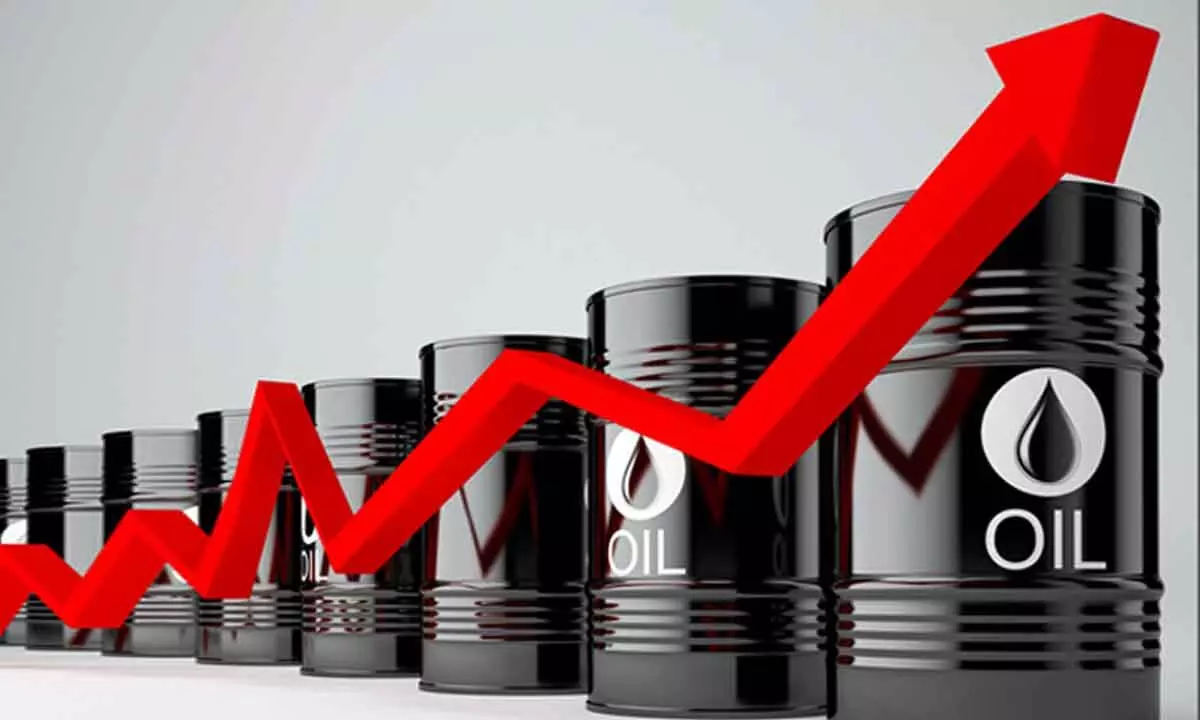Conflict-induced rise in oil prices needs global attention
image for illustrative purpose

Amidst festivities across India, the most disturbing and concerning pictures coming from some other parts of the world include the wailing sirens of ambulances, shattering sounds of rockets, grenades and blasts, army convoys and fighter jets hovering over Middle East skies and the grisly killing videos. Economic experts opine that the Israel-Hamas war can worsen the world economy if it spreads to other parts of the Middle East, particularly Iran, a major oil producer and Hamas sponsor. There is no doubt whatsoever that the ongoing war has already cast uncertainties over the region’s geopolitical stability. There will be an immediate impact not just on Israel but other countries as well. Crude oil prices have already gone up by four per cent and oil prices are at $90. To stem the rot from the conflict spreading to other oil producing nations requires careful monitoring, especially given the global economy's 'higher for longer' interest rate scenario. One has to remember that the oil supply is not likely to be threatened that way unless the issue expands to other countries in the region and becomes a proxy conflict between the US and Iran.
Nearer home, India continues to enjoy relative macroeconomic stability at this moment but it is vulnerable to one key risk - supply disruption in crude oil prices because of escalation in the war, resulting in a spike in crude oil prices. High crude oil prices hurt India impacting currency stability (making imports expensive), possibly worsening the government’s fiscal deficit (the government is likely to absorb higher prices by cutting excise duty), widening the CAD further impacting currency adversely and affecting the profit margins of sectors such as aviation, paints, tyres and chemicals. All these implications could have a negative impact on economic growth in the short term, as high inflation and low profitability in various sectors will hit disposable incomes and discretionary spending. While the conflict may not affect India's trade with Israel immediately, ait is possible that if the battle escalates, supply-side issues may crop up. Interestingly, India's merchandise exports to Israel now stand at 1.8 per cent of total exports. And they mostly include petroleum products.
Israel imports $5.5-6 billion in refined hydrocarbons from India, whose exports to Israel was $8.4 billion in FY23. India imports equipment, pearls, diamonds, and other precious and semi-precious stones from Israel. India imported $2.3 billion from Israel in 2023. One must also remember that the global economy faces high inflation again as crude oil prices rise. If oil prices stay high, the US, India, China, and other major nations that import oil may see substantial import inflation. When oil prices rise, the impact will be felt by industries, businesses and all households. High energy prices and new inflationary trends could undermine the efforts of central banks to bring inflation under control. This can see interest rates at an elevated level for a prolonged period.

